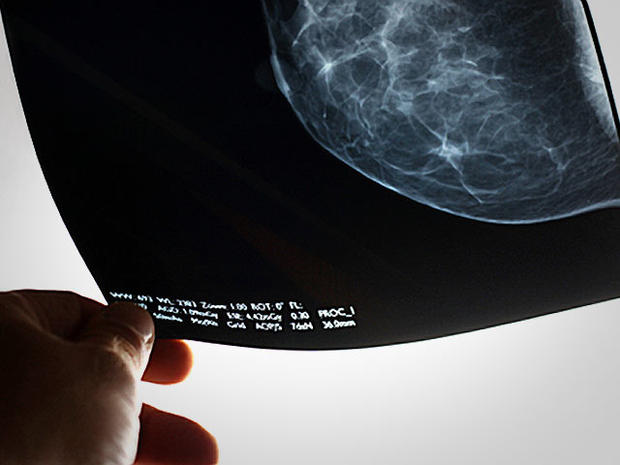Girls who survive childhood cancer face breast cancer risk as adults from radiation
(CBS News) Childhood cancer survivors often face a tough battle against a disease that zaps their strength and treatments that cause nasty side effects. Now a new study shows girls who were treated with chest radiation during a bout of childhood cancer and survived are at risk for developing breast cancer as adults.
An increased risk of breast cancer is already a known, long-term side effect of moderate to high-dose radiation therapy to the chest, and current screening guidelines for childhood cancer survivors recommend annual screening with a mammogram or MRI for women who received 20 or more Gray or Gy - a measure of the radiation dose - of therapy to the chest. But this new study found that survivors who received lower radiation doses have a higher risk of breast cancer, and may need to follow similar recommendations.
Scientists release childhood cancer genome data that could key treatments
More advanced "smart bomb" cancer treatments targeting disease, leaving healthy cells alone
Watch: Survival rate for childhood cancer rising
The study, presented June 4 at the American Society of Clinical Oncology annual meeting in Chicago, looked at more than 1,200 women who survived childhood cancer, and compared them with data on 4,570 women who were relatives of someone with breast cancer. They found that by age 50, almost a quarter of women who survived childhood cancer developed breast cancer.
Thirty percent of women treated for Hodgkin lymphoma as children - a cancer of the lymph system that our bodies use to fight infection and disease - developed breast cancer before 50. The researchers say this added risk is similar to that of women who possess the so-called "breast cancer genes" BRCA1 and BRCA2. Reviewing data on relatives of someone with breast cancer tied having the BRCA1 gene to a 30 percent risk of getting the disease and BRCA2 to a 10 percent added risk. An average woman's risk of breast cancer by age 50 is 4 percent.
Risk was evident from moderate doses of radiation in the 10 to 19 Gy range, about 7 percent developed breast cancer, compared with 12 percent who received radiation doses of 20 Gy or higher.
"While radiation doses have decreased and techniques have improved, radiation therapy is still an essential part of treatment for many childhood cancers," said study author Dr. Chaya S. Moskowitz, associate attending biostatistician at Memorial Sloan-Kettering Cancer Center in New York City, said in a news release. "The goal is to cure the cancer for more children while lessening future health problems. Our results suggest that young women treated with lower doses of radiation who are not currently being screened also have a higher risk of breast cancer and might benefit from a similar screening schedule."
Dr. Paula Ryan, a breast cancer specialist at Fox Chase Cancer Center in Philadelphia who was not involved with the study, told the Associated Press that up to 9,000 more women who were given moderate radiation may need to get screened for breast cancer from the new findings.
"They're a group that may be vulnerable," she said.
Childhood cancer treatments today typically provide lower doses of radiation to smaller regions of the body. More than 10,000 children are diagnosed with a childhood cancer each year, according to the National Cancer Institute, and more than 1,500 kids will die. Among the 12 major types of childhood cancers, leukemias (blood cell cancers) and cancers of the brain and central nervous system account for more than half of the new cases.

